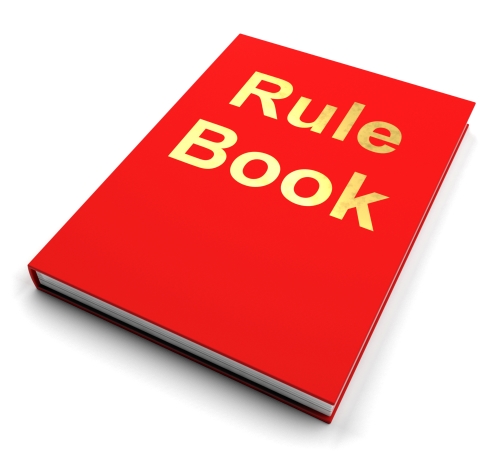“The recently issued NPRM establishes a series of content requirements for counterclaims raised based on contractual agreements… [They] also establish various discovery procedures regarding such agreement-based counterclaims.”
 On May 3, the U.S. Copyright Office published a notice of proposed rulemaking (NPRM) in the Federal Register amending final rules promulgated for infringement proceedings conducted by the Copyright Claims Board (CCB). The proposed rule changes would impact how respondents in CCB actions can assert counterclaims arising out of previous contractual agreements between parties to the action, as well as document production requests related to those counterclaims.
On May 3, the U.S. Copyright Office published a notice of proposed rulemaking (NPRM) in the Federal Register amending final rules promulgated for infringement proceedings conducted by the Copyright Claims Board (CCB). The proposed rule changes would impact how respondents in CCB actions can assert counterclaims arising out of previous contractual agreements between parties to the action, as well as document production requests related to those counterclaims.
Agreement-Based Counterclaims Not Addressed by First Version of CCB’s Final Rules
In March 2022, the Copyright Office promulgated final rules for proceedings conducted by the CCB, the alternative venue for adjudicating small claims for copyright infringement valued at less than $30,000 in damages, following a notification of inquiry published the previous March seeking public comment on the governing rules and implementation of the CCB. Established by the Copyright Alternative in Small-Claims Enforcement (CASE) Act, the CCB has also been granted jurisdiction codified at 17 U.S.C. § 1504 to hear counterclaims and defenses in addition to the infringement claims asserted at the CCB. Although both claimants and respondents must assent to the voluntary proceedings conducted by the CCB, the forum was established to serve as a cost-effective alternative to U.S. district court for adjudicating such claims.
Under the CCB’s final rules, respondents in infringement proceedings before the Board may raise counterclaims that arise under 17 U.S.C. § 106, which governs exclusive rights held by those owning copyright in original works, and 17 U.S.C. § 512(f), which enables respondents to hold copyright claimants liable for damages for knowingly material misrepresentations on infringement allegations. A third category of counterclaims that the CCB is permitted to hear by statute are agreement-based counterclaims, which under Section 1504 “arise[] under an agreement pertaining to the same transaction or occurrence that is the subject of a claim of infringement… if the agreement could affect the relief awarded to the claimant.” Originally, the CCB’s rules required counterclaimants to allege facts leading to the belief that infringement has occurred, but those rules did not specifically address the category of agreement-based counterclaims.
Counterclaims Must Identify Agreement Affecting Relief to Infringement Claim
A CCB handbook published by the Copyright Office provides a useful example of an counterclaim based on a contractual agreement between parties that can affect the amount of relief sought by the claimant. The CCB handbook discusses a situation where an allegedly infringing customer of a stock photography company may raise a defense that such activity was within the scope of the licensing agreement. The respondent could also raise breach of contract counterclaims if the licensing agreement covered the activity but the photo company breached the agreement by disabling the customer’s access to the photo library.
The recently issued NPRM establishes a series of content requirements for counterclaims raised based on contractual agreements. The proposed rules would amend 37 CFR § 222.9 to require an identification of the agreement upon which the counterclaim is based, a brief statement of how the agreement pertains to the allegedly infringing transaction or occurrence at issue in the CCB claim, and a brief statement of how the agreement could affect the relief awarded. The rules would also require claimant responses to counterclaims to provide a detailed description of any defenses to the counterclaim and any reasons why the agreement-based counterclaim lacks merit.
NPRM Also Establishes Discovery Rules Surrounding Agreement-Based Counterclaims
The newly proposed counterclaim rules also establish various discovery procedures regarding such agreement-based counterclaims. Supplementing the standard rules on interrogatories used in CCB proceedings, as set out by 37 CFR § 225.2, interrogatories on agreement-based counterclaims must include information related to written or oral provisions the counterclaimant believes to be violated, the basis for the counterclaimant’s belief that a violation occurred, reasons why the agreement affects the relief sought, any relevant description of the counterclaimant’s performance under the agreement and any alleged failure of the claimant’s responsibility to perform under the agreement. Standard interrogatories for counterclaim respondents must address defenses to the counterclaim, any basis of belief that the agreement does not affect the relief sought, the respondent’s performance under the agreement and any inadequate performance under the agreement by the counterclaimant.
Finally, the NPRM would also impact standard requests for document production related to agreement-based counterclaims as governed by 37 CFR § 225.3. Such requests would cover documents related to the agreement at issue, including amendments or revisions, as well as documents related to the performance of either party under the agreement. Further, whereas counterclaimants would be required to produce documents sufficient to show damages suffered by the alleged violation, respondents would produce documents showing the counterclaimant’s lack of damages.
Public comments submitted in response to the Copyright Office’s NPRM on agreement-based counterclaims must be received by the Office no later than 11:59 PM Eastern on June 20, 2023. Such comments may be filed with the Office directly through the agency’s online comment submission website.
Image Source: Deposit Photos
Image ID: 12651824
Author: stuartmiles

![[IPWatchdog Logo]](https://ipwatchdog.com/wp-content/themes/IPWatchdog%20-%202023/assets/images/temp/logo-small@2x.png)

![[Advertisement]](https://ipwatchdog.com/wp-content/uploads/2024/04/Patent-Litigation-Masters-2024-sidebar-early-bird-ends-Apr-21-last-chance-700x500-1.jpg)

![[Advertisement]](https://ipwatchdog.com/wp-content/uploads/2021/12/WEBINAR-336-x-280-px.png)
![[Advertisement]](https://ipwatchdog.com/wp-content/uploads/2021/12/2021-Patent-Practice-on-Demand-recorded-Feb-2021-336-x-280.jpg)
![[Advertisement]](https://ipwatchdog.com/wp-content/uploads/2021/12/Ad-4-The-Invent-Patent-System™.png)







Join the Discussion
No comments yet.